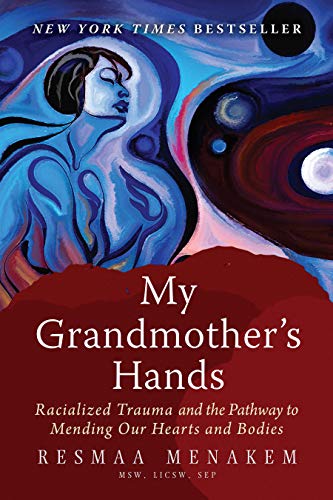My Grandmother's Hands: Racialized Trauma and the Pathway to Mending Our Hearts and Bodies
amazon.com
My Grandmother's Hands: Racialized Trauma and the Pathway to Mending Our Hearts and Bodies

our bodies don’t care about logic, truth, or cognitive experience. They care about safety and survival. They care about responding to a perceived threat, even when that threat is not real. As a result, our bodies scare the hell out of each other.
It sees Black bodies as dangerously impervious to pain11 and needing to be controlled. Yet it also sees them as potential sources of service and comfort.
when I’m scared, I know enough to let my body tap into its inherent resilience and flow, to help it settle, and to lean into my clean pain. I also have a community of healed and healing bodies that supports me and holds me accountable.
Cultural Somatics, an area of study and practice that applies our knowledge of trauma and resilience to history, intergenerational relationships, institutions, and the communal body.
choose the dirty pain of silence and avoidance and, invariably, prolong the pain.
Dirty pain is the pain of avoidance, blame, and denial. When people respond from their most wounded parts, become cruel or violent, or physically or emotionally run away, they experience dirty pain. They also create more of it for themselves and others.
Experiencing clean pain enables us to engage our integrity and tap into our body’s inherent resilience and coherence, in a way that dirty pain does not.
the self becomes freer and more capable, because it now has access to energy that was previously protected, bound, and constricted. When this happens, people’s lives often improve in other ways as well.
Clean pain is pain that mends and can build your capacity for growth.